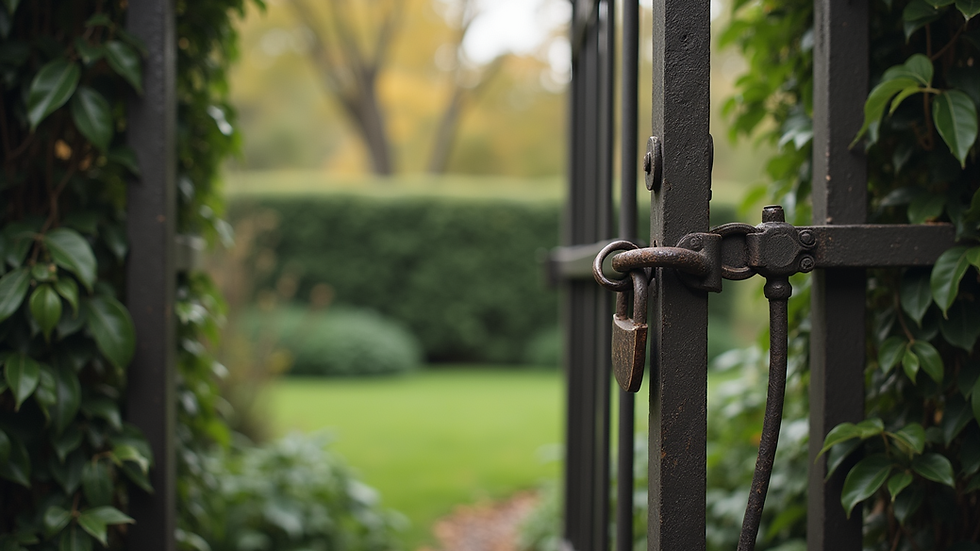The Dangers of Centralized Social Media Ownership and Your Content's Vulnerability
- Compassion Advisors FZ LLC
- Oct 24, 2025
- 4 min read
In today's digital world, social media is woven into the fabric of our daily lives. These platforms facilitate communication, self-expression, and the sharing of ideas. Yet, the centralized control of these platforms poses serious risks to users. Issues related to content ownership and account security become pressing concerns but the even greater threat to human nature and the human needs is the backdoor that these platforms have for life-alienated systems to sneek into the platforms. This blog post highlights the dangers of centralized social media ownership, showing how one entity’s control over your content can lead to vulnerabilities, including unexpected account closures.

The attraction of social media lies in its potential to unite individuals around the globe. However, this connection often comes with significant drawbacks. Major platforms such as Facebook, Twitter, and Instagram follow a model where a single company owns all the data and content created by users. This ownership structure raises important concerns about user rights and the risks of allowing one organization to control how we engage online.
One of the most pressing issues is users' lack of control over their own content. When you share a photo or write a post, you might feel a sense of ownership. However, the truth is that the platform retains the rights to that content. According to a study by the Electronic Frontier Foundation, approximately 60% of users are unaware that social media companies can use their content for advertisement or promotional purposes without compensating them. Your creativity may be modified or even removed at the platform's discretion. In doing so, life-alienated language is given an unfair advantage over love, empathy and compassionate giving.
Moreover, the terms of service often include vague clauses that enable these platforms to suspend accounts at any time. Reports indicate that platforms like Twitter and Facebook close thousands of accounts daily. Users may find their profiles disabled due to perceived policy violations or automated decisions made without human oversight. For instance, in 2020, Facebook faced backlash for mistakenly banning nearly 1.3 million users for false violations. The result is that users can lose both their content and their connections abruptly. Life-alienated language wins and human nature and the human needs loose big.

Another critical concern is the lack of transparency surrounding how these platforms function. Users typically have little understanding of the algorithms that determine the visibility of their content. Approximately 63% of social media users report feeling frustrated by low engagement or getting shadowbanned without clear explanations. This opacity can lead to a sense of helplessness, as users question why their contributions receive little attention. Life-alienated language has the force to put itself in front of everything else.
The centralized nature of these platforms also raises serious data privacy issues. Users often willingly share personal information and images, believing they are in a secure environment. However, their data can easily be harvested, sold, or even mishandled by the platform or third parties. The Cambridge Analytica scandal exemplifies this danger, where misuse of user data resulted in significant breaches of trust and had long-lasting impacts on public perception of social media. Life-alienated language systems come up with all sorts of reasons why they want access to your privacy.
Beyond privacy concerns, the monopolistic tendencies of centralized platforms can hinder competition and stifle innovation. Smaller platforms find it difficult to emerge in a market dominated by giants like Facebook and Instagram. This leads to a lack of diversity, where unique voices and innovative ideas struggle to be heard amid a flood of cookie-cutter content shaped by these platforms’ algorithms. Life-alienated language systems have the force to manipulate these algorithms and push agendas to the mainstream consciousness even if the content is harmful to human nature and the human needs and disconnects human beings from the human needs.
As users, recognizing the implications of centralized social media ownership is essential. One proactive step to mitigate these risks is diversifying your online presence. Instead of relying solely on popular platforms, try exploring alternatives that enhance user control and data privacy. Platforms like TRUEHN NETWORK and diamond prioritize user autonomy over content and connections, allowing for a more secure and personalized online experience.
Staying informed is equally important. Familiarize yourself with the terms of service and privacy policies of the platforms you use. Understanding your rights and the possible risks can empower you to make better decisions about your online presence.

Moreover, fostering genuine connections with your audience can help create a more resilient online presence. Engaging in meaningful conversations and encouraging dialogue fosters a community that values your contributions, no matter what changes the platform may force upon you.
In summary, the centralized nature of social media ownership presents significant threats for users. The vulnerabilities related to content, lack of control, and risk of sudden account closures are pressing issues deserving our attention. By diversifying your online presence, staying informed, and creating authentic connections, you can navigate the challenging landscape of centralized social media with more confidence and security.
As we continue to use these platforms, it's crucial to advocate for more transparent and user-centric models that reflect the needs of individuals. Only then can we shape a digital environment that truly encompasses the diverse voices of all users. And even more important is that we have to keep life-alienated language and their systems as far away from human nature and the human needs as possible.










Comments